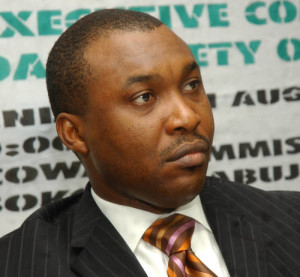 Gone are the days of the African “Big Man.”
Gone are the days of the African “Big Man.”
Africa is not the same place it was 50 years ago, Africa is not even the same place it was 10 years ago. The era of the “strongman” a vestige of colonial indirect rule system ended with the growth of democracy.
Today’s Africans have embraced freedom, civil rights and equal opportunities. We have progressed as a continent. As our economies grew and modernized, so too did our education and literacy rates, and, with that, our demands for democracy and social freedoms.
In many places, the traditional strongman has been ushered out. In his place, we instead have strong institutions, separation of powers, multi-party systems (complete with the mud-slinging political campaigns with which westerners are familiar), an empowered electorate, and a lively and free media to hold us all accountable.
This is the picture of the Africa of today and tomorrow. The Africa of yesterday – with its dictators and transmuting “reformed” democrats – is history.
It is not often that countries witness a regression – a democracy fall rearward into the hands of a dictator. Typically, once democracy is established, there is no going back. But as any student of history can attest, an environment of fear among the populace can make unpalatable solutions seem like a viable option to some. Even if those solutions threaten the very democracy that the people worked so hard to build. And when this happens, when the choice is made to turn against democracy, it does not end well.
Nigeria is facing such a choice in the upcoming presidential election. The choice between the 57 years old President Goodluck Jonathan and 73 years old retired General Muhammad Buhari.
President Jonathan, a democrat by temperament and instinct, whose evolution from Deputy Governor, Governor, Vice President and President has steeped him in the democratic culture necessary for Institution Building. His tenure has led to remarkable strengthening of democratic institutions, widening the civic space, improved the infrastructure stock and sustained economic growth in the face of strong headwinds occasioned by terrorism and falling oil price.
Gen. Muhammad Buhari on the other hand reigned as a military dictator from 1983-1985 after violently taking over power from a democratically-elected president in a military coup. Knowing that he cannot wish away his record, he instead claims to have changed his ways, with his campaign team having crafted a term for him: “reformed democrat.” In the cases where Military Dictators transmuted across Africa the result has been less than palatable.
Dictators, with their “strongman mentality” and impatience with democratic institutions, no longer have a place in our modern world and certainly not in the largest economy in Africa – because in addition to the more obvious social costs and the sacrifice of rights, their economics are disastrous.
Quite simply, dictators are a bad investment.
Consider the economic strides taken since Nigeria entered democracy in 1999, with a government steered by the democrats of the People’s Democratic Party (PDP), compared to its dictatorial past. The difference is utterly striking.
During the 16 years of military rule (from 1983 to 1999), GDP per capita actually dropped from $444 to $299 (under Buhari’s disastrous economic management, in particular, we saw it drop from $444 to $344 in 18 months!). During PDP’s democratic rule, from 1999-2014, we’ve seen the GDP rise exponentially – from $299, where the dictators left it, to $3,005.
Overall GDP experienced an equally remarkable surge from democracy and the PDP. Under Buhari the GDP fell from $35 billion to $28 billion. Under the PDP, the GDP has grown from $35 billion to a whopping $521 billion.
Dictators in general, and Buhari in particular, clearly lack the economic acumen and qualities of leadership that spurs growth, development and prosperity for the Nigerian people.
What evidence do we have that he will be a positive force for Nigeria? Many see only evidence to the contrary, and an abundance of it. We remember his promulgation of Decree 4 – he still insist he has no regrets- that jailed Journalists and curbed freedom of speech. How he intends to rule under the Freedom of Information law regime instituted by President Jonathan is still a mystery to Nigerians.
Even amongst Nigeria’s military rulers Buhari ranks lowly, his regime had no handover to civilians plan, isolated Nigeria diplomatically and passed laws retroactively. The question We ask Nigeria watchers and voters: with a record of seizing power through force, of brutally oppressing the people, and of triggering economic turmoil – would you find him to be a suitable leader?
So, as Africa rises, let’s all raise our standards for African leadership along with it. Indeed, let’s raise them to equal global standards. After all that will be international best practice.
THISDAY
END

Be the first to comment